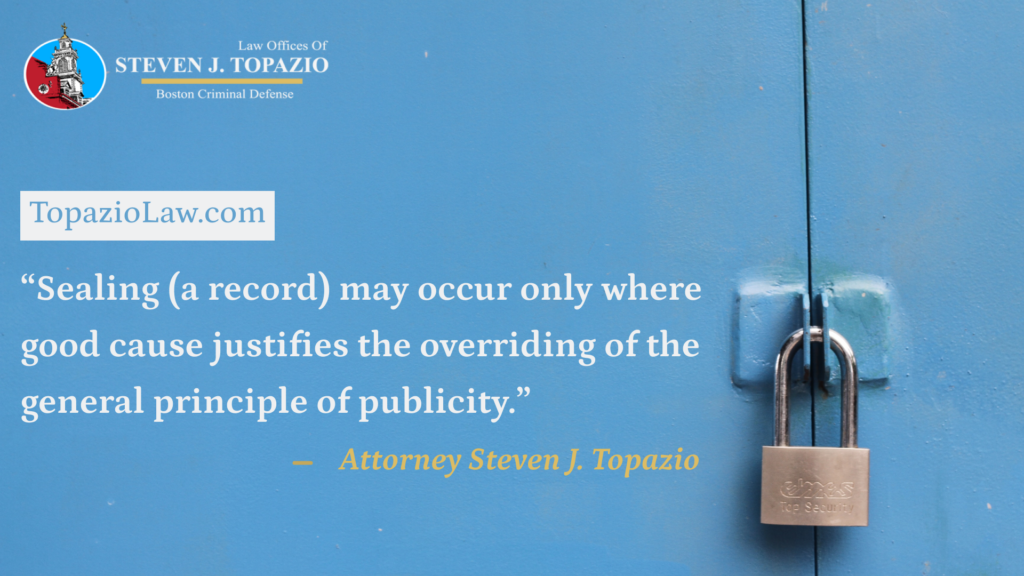Sealing Criminal Records that Resulted in Dismissal
- Steven Topazio wrote this November 2, 2023 at 3:03 pm

Sealing Criminal Records that Resulted in Dismissal
The court recently announced a new standard in sealing criminal records. It concluded that the records of closed criminal cases that resulted in the entry of a nolle prosequi or a dismissal are subject not to a presumption of access under the First Amendment to the United States Constitution but, rather, to a common-law presumption of public access and, therefore, that the sealing of such records under G. L. c. 276, § 100C, second par., may be accomplished by establishing that good cause exists for the sealing.
Consequently, the court stated that it will no longer require that a defendant seeking sealing under G. L. c. 276, § 100C, second par., prove “that the value of sealing . . . clearly outweighs the constitutionally- based value of the record remaining open to society.” Instead, the court announced that it will interpret the legislative directive that “substantial justice [will] best be served” by sealing to mean that the defendant must establish that good cause exists for sealing. See G. L. c. 276, § 100C. Although a good cause analysis requires consideration of similar factors as an analysis where the First Amendment is implicated, the weight of the scales is more balanced, and the burden on the defendant somewhat lessened. Nonetheless, the basic framework remains the same: sealing may occur only where good cause justifies the overriding of the general principle of publicity.
In assessing whether the defendant has established good cause for sealing his or her record, the court announced that judges must balance the interests at stake. If, after balancing those interests, the judge determines that the defendant has done so, the substantial justice standard will be satisfied. This test achieves the necessary balance between the common-law presumption of access and the privacy interests at stake.
COMMONWEALTH vs. PON, 469 Mass. 296, (2014)
Background Image courtesy of: Muhammad Zaqy Al Fattah

